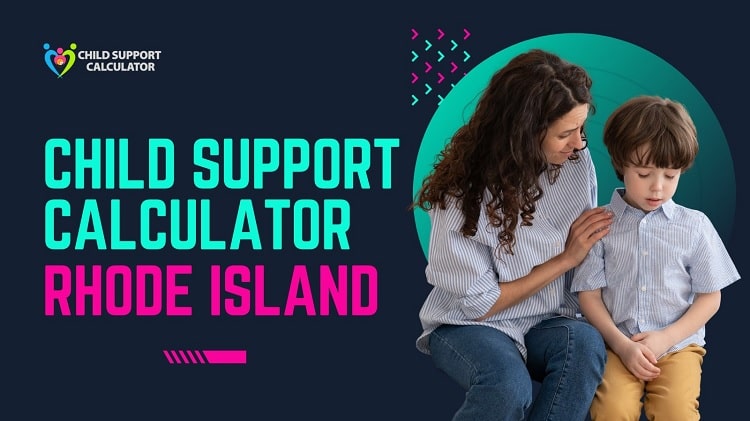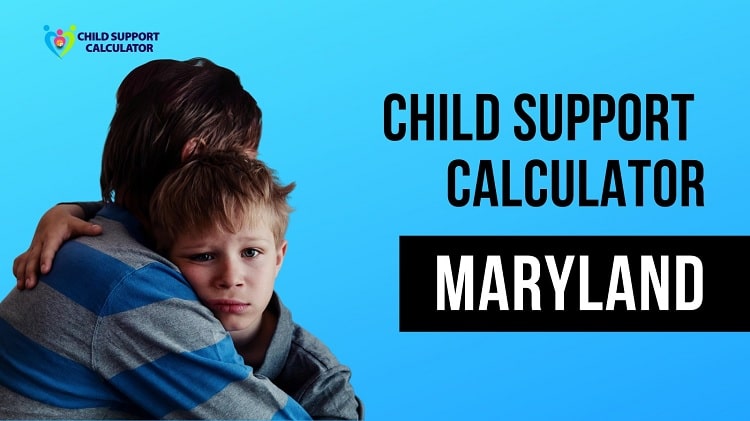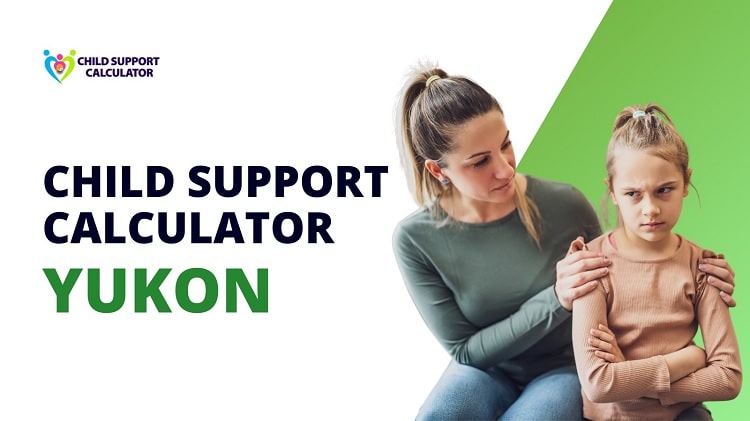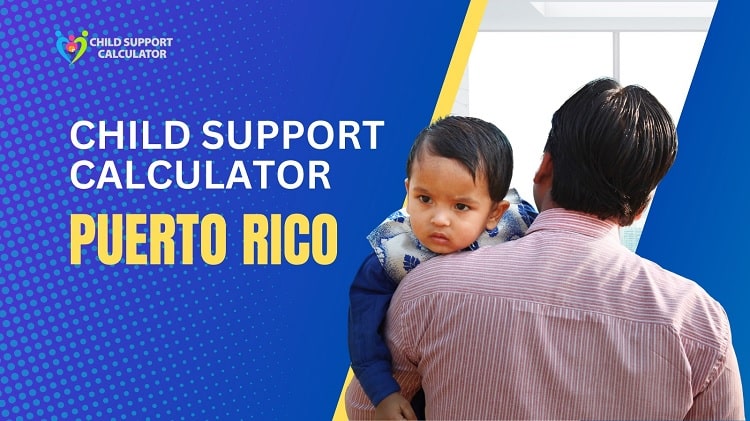Rhode Island Child Support Calculator (Ri) | Guidelines – 2024
Both parents have a responsibility to support their child in Rhode Island. This means that both parents are responsible for providing for the child’s economic and other necessities. Kid support payments are usually made by the non-custodial parent, who spends less than half of the time with the child (or children) determined by the Rhode Island Child Support Calculator.
The custodial parent, who spends the most time with the kid, is still liable for average child support, but the law expects that this parent spends the necessary number on the child immediately.
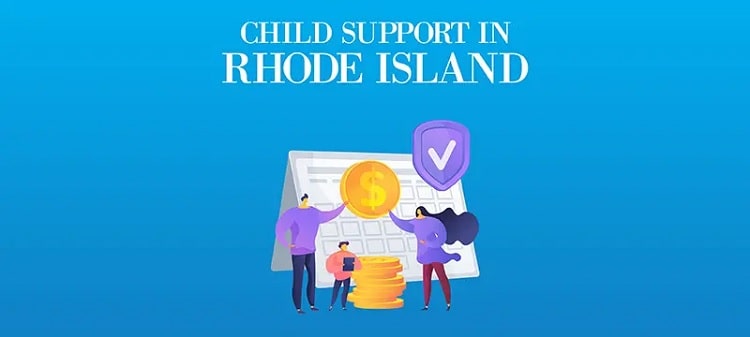
The amount of financial assistance owed is determined by the child’s requirements and the parents’ financial resources. The state accomplishes this balance through principles that define a minimum level of assistance. Parents must additionally fund the child’s healthcare coverage and medical bills in excess of this sum.
How to Calculate Child Support Payments in Rhode Island
A child support Guideline Worksheet is available from the Rhode Island Department of Social Services to assist you with the formula to calculate your fair portion of child support.
You’ll need to know both parents’ monthly gross income to get started with the Rhode Island Child Support Calculator. Gross income covers all sources of income (before subtracting expenses) for average child support reasons, albeit you can remove benefits from the Family Assistance Program.
Your salary, earnings, incentives, and royalties from your employer, as well as any annuity or severance compensation, are all considered income according to the RI child support worksheet. Money received via royalties, installments, a trust, or rentals is also considered income. If you’re jobless, you’re likely to have child support income in the form of social security, workers’ insurance, or unemployment or disability payments.
You must also be aware of the following figures:
- Any child support payments that have already been made.
- Premiums for health insurance or medical payments made on behalf of the kid by the parents.
- Whether there are any more underage dependents.
- Child care expenses are incurred as a result of one’s job.
These are reductions from monthly gross income that you can reduce to get the parents’ adjusted gross earnings. Pension contributions, life insurance premium payments, a parent’s special medical expenditures, income tax exemption changes, and payments of allocated marital obligations might all be deducted by the court.
Look at the formula to calculate the amount payable for the number of children to be maintained after you know both parents’ adjusted gross incomes. This is the starting point for child support, which is divided between parents depending on their salaries.
In instances involving “divided custody” and “joint custody,” child support calculations must be altered. When there are many children, and each parent has custody of at least one of them, this is known as split custody. When a kid spends time with both parents throughout the year, it is known as shared custody.
Be cognizant that new or modified child support orders issued by the Rhode Island Family Court must include a statutory duty to either or both parents who owe a duty of support to the child to acquire or preserve health coverage for the child at no cost or at an affordable price through their workforce.
Imputed Income for Child Support
When parents purposely reduce their income, they attempt to avoid their duty for child support. That’s a fool’s errand since if a court concludes that a parent is intentionally jobless or underemployed, the court can calculate the parent’s average child support obligation based on an estimated income.
The court will consider several issues while making its decision, including:
- Assets, domicile, work and earnings history, job skills, educational achievement, literacy, age, and health of the non-custodial parent
- Other employment hurdles include a criminal background.
- History of looking for a job
- The work market in the area and the number of employers ready to hire non-custodial parents.
- The current level of income in the neighborhood.
- Additional pertinent background information in the case.
It’s important to remember that a parent’s inability to make enough money might have good reasons. Consider the case of a parent who has been irreversibly incapacitated.
Deviating From the Rhode Island Guidelines
When the court judges that following the standards would be unjust to the child or either parent, the law variance the criteria. The court must examine all pertinent factors in making such a conclusion, including but not restricted to:
- The financial resources of the kid.
- The financial resources of the custodial parent.
- If the marriage hadn’t been dissolved, the child’s level of life would have been higher.
- The physical, emotional, and educational needs of the kid and the financial means and requirements of the non-custodial parent.
When a court deviates from the rules, judges must offer a written explanation of why they believe following the guidelines is improper.
How Is Child Support Paid?
With new or amended orders in RI, income withholding is required unless a parent can show that there is a strong reason not to demand it or the parent’s sign into a written provision that allows for an alternate arrangement.
Your employer refuses to release the amount of support from your salary and delivers it to the proper state agency with income withholding. If you move jobs, you must tell the Office of Child Support Services and your new employer of the current child support order.
Income withholding may not be feasible in some instances. This is common in instances involving self-employed people. In certain cases, Rhode Island offers a variety of payment options. You can make a payment to the Rhode Island Child Support Payment Service Unit directly. You may also use a credit or debit card to pay.
Child support recipients have the option of receiving a KIDS card, which will be credited with support payments or having the support amount directly transferred into a savings or checking account.
Modifying a Child Support Order in Rhode Island
Even if you have a child support order in place, you may be able to amend it at any moment if your circumstances have changed significantly. This usually occurs as a result of the loss of a job, but it might also happen as a result of a life transition, such as the birth of a child or a change in the amount of time your kid spends with you.
You must wait three years from the day the court granted the order to request a review unless your situation has changed. Even then, the court will evaluate it in accordance with the rules, which are subject to change, so be forewarned that the number of your payments may alter.
You can seek a reconsideration from the Office of Child Support Services, which will assess the request to see enough proof to substantiate a hearing in Rhode Island Family Court, where the new order will be issued. The following would be appropriate criteria:
- The application of new financial documents to the child support guidelines would result in a divergence of 15% or more.
- It’s been 36 months since the order was placed or the last time it was evaluated.
- The non-custodial parent may get health insurance at a fair price, and the current support order either does not pay for the health care requirements of the children encompassed by the order or does not otherwise provide for health care coverage.
- Adding another parent’s child who isn’t covered by the existing support order.
- A change in custody or responsibility for the care of a child encompassed by the order has occurred.
- Since the order was entered, the parent has been responsible for the expenses of a new minor dependent who is not covered by the current child support order.
Terminating a Child Support Order in RI
Kid support usually ceases when a child reaches the age of 18 or becomes emancipated. (While there is no explicit emancipation legislation in Rhode Island, emancipation usually happens when a kid is self-supporting, married, or serving in the military.)
If the kid reaches the age of 18 while still in high school, the court may compel support payments for up to 90 days after graduation but no longer than 19. A court may, however, force parents to assist a kid under the age of 21 who has a significant physical or mental handicap.
It’s important to note that in order for your support obligation to be legally terminated, you’ll need to acquire a court order. So, if you want to stop paying child support, contact the Office of Child Support Services.
Also, even if you won’t have to pay average child support in the future, you’ll still be responsible for any accumulated support arrears.
Enforcing Rhode Island Child Support Orders
If a parent who is entitled to pay child support calculated by the Rhode Island Child Support Calculator fails to do so, RI offers a number of options for implementing the order. Here are a few examples:
- Credit reporting bureaus.
- Suspension of a driver’s license.
- Refusal to issue a passport.
- Liens on bank accounts and other personal property.
- Liens on real estate.
- Interception of insurance.
- Proceedings for disobedience.
- Interception of the lottery.
- Interception of a tax refund.
- There will be a criminal investigation.
Is there a minimum amount?
In RI, a father or mother who is subject to a support order may seek more than the minimum limits. Child support standards are only a starting point. In theory, the support standards in Providence Family Court are meant to represent a floor rather than a ceiling for child support. However, Rhode Island child support attorneys are well aware that minimal requirements are employed in the great majority of RI support cases.
What could cause a Providence Family Court Judge to go over and above the minimums for support?
The following are some of the circumstances that might cause a Washington County Justice to go above and above the RI Child Support minimum guidelines:
- Assets of high worth.
- A higher standard of living and spending than stated gross income might suggest that the person is lying to the court about his or her income.
- Expenses and requirements of the children that are extraordinary and exceptional yet essential and appropriate.
How does having shared custody of the child affect child support in Rhode Island?
In circumstances when the custody agreement allows for joint or shared custody of a child between both parents, all states provide a mechanism of adjusting the amount of child support payable.
The child support formula to calculate in Rhode Island takes joint custody of a child into account directly when calculating payment amounts. This implies that in circumstances where custody is shared, the paying parent’s child support payment will be decreased in proportion to the length of time they have custody of the kid.
Faqs
How are child support payments taxed in Rhode Island?
According to IRS standards, child support recipients are not required to pay federal tax on their payments, and child support payers are not permitted to deduct their payments. This is in contrast to the federal taxation of alimony payments, which the receiver treats as taxable income and the payor deducts. Child support may be taxed differently in Rhode Island

